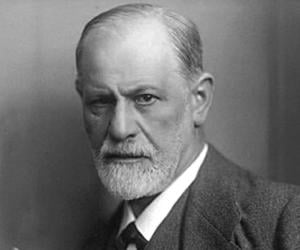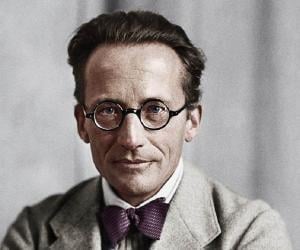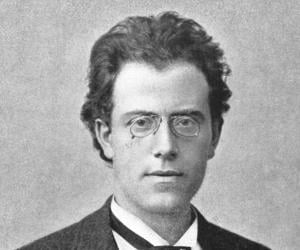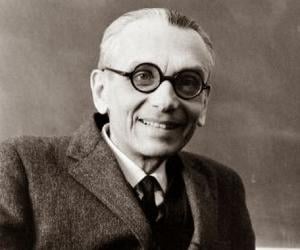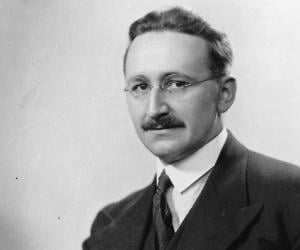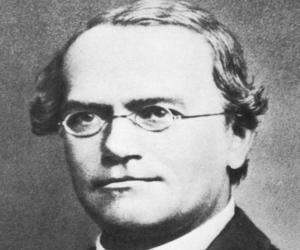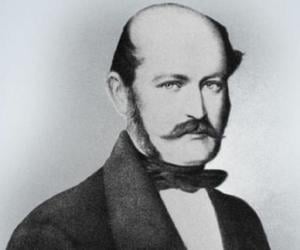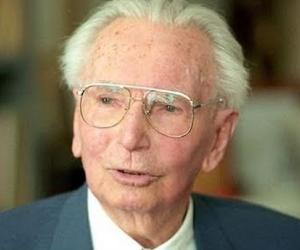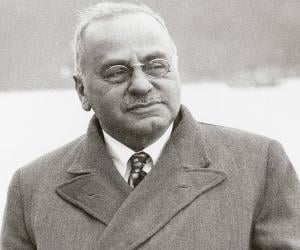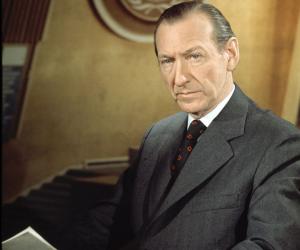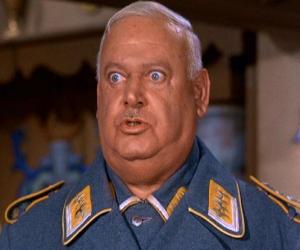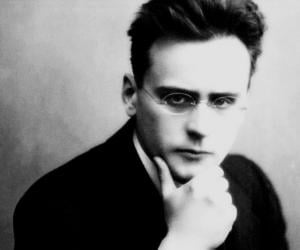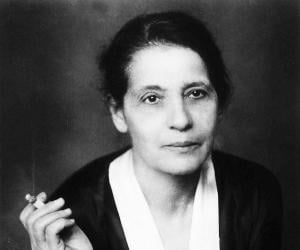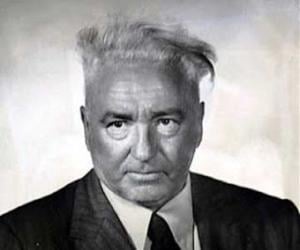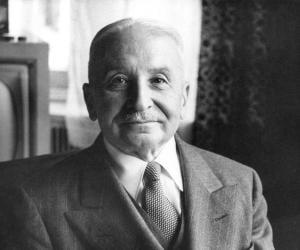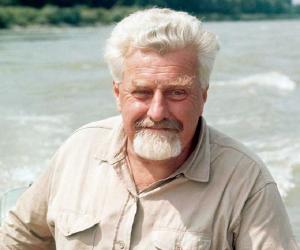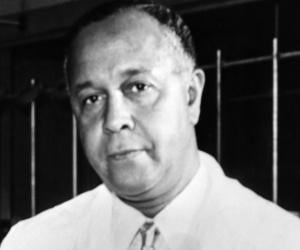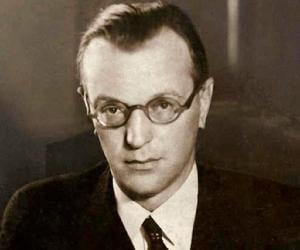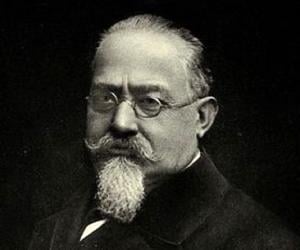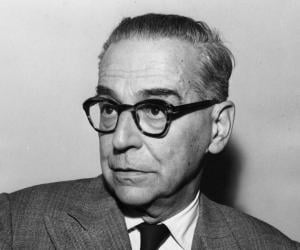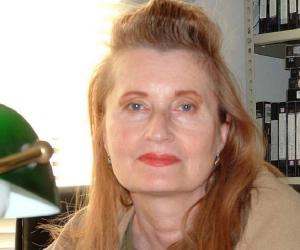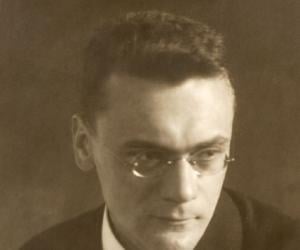Regarded as the father of psychoanalysis, Sigmund Freud was a neurologist. Despite suffering criticism, psychoanalysis remains influential in the fields of psychology and psychiatry; such is the influence Freud has on humanities. Scholars believe that Freud is one of the most influential personalities of the 20th century and that his impact is comparable to that of Marxism and Darwinism.
Austro-Bohemian Romantic composer and conductor Gustav Mahler symbolized the transition of 19th-century Austro-German music to early-20th-century modernism. His music was banned during the Nazi era but was rediscovered later. Famous for his Eighth Symphony, he had also been the director of the Hofoper (Vienna Court Opera).
Hailed as one of the greatest logicians since Aristotle, Kurt Gödel was Austrian-born American mathematician, logician, and philosopher, who earned international stardom for his incompleteness theorem. Also credited with developing a technique called Gödel numbering, he later started working on Mathematical Platonism, a philosophical theory that failed to attract wide acceptance.
A winner of the Nobel Memorial Prize in Economic Sciences, Friedrich von Hayek, was an advocate of classical liberalism. The Austrian-British economist, who was also a political philosopher, co-founded the Mont Pelerin Society. He worked at the London School of Economics, the University of Chicago and the University of Freiburg and authored the popular book, The Road to Serfdom.
A scientist, meteorologist, mathematician, and biologist, Gregor Mendel is considered the founder of the modern science of genetics. He conducted a series of experiments on pea plants between 1856 and 1863, establishing many rules of heredity. Besides his work on pea plants, he also described novel plant species and conducted experiments with hawkweed and honeybees.
Almost 2 decades before germ theory was laid down, Ignaz Semmelweis became the first physician to suggest that hand-washing could prevent the spread of puerperal fever and related deaths. Ironically, after being ridiculed for his theory, he died in a mental asylum, due to an infection from a wound.
Austrian psychiatrist Viktor Frankl founded logotherapy. He also authored several books, most notably his bestselling autobiographical depiction of his ordeal at various Nazi concentration camps, Man's Search for Meaning. He had lost his parents, brother, and wife in the Holocaust. He later won honors such as the Oskar Pfister Award.
Alfred Adler was an Austrian psychotherapist and medical doctor. He is credited with founding the school of individual psychology. He was also one of the founders of the psychoanalytic movement along with Sigmund Freud and Freud's colleagues. In 2002, a survey conducted by Review of General Psychology named Adler among the 20th century's most eminent psychologists.
While he claimed he studied at the University of Vienna during World War II, documents recovered later suggested that Kurt Waldheim was in fact part of the German army in the Balkans. Waldheim later became the president of Austria and the secretary-general of the United Nations.
Austrian-born actor John Banner is best remembered as Sergeant Schultz from the World War II-themed sitcom Hogan's Heroes. He was known for his popular catchphrase “I see nothing! I hear nothing! I know nothing!" He has also appeared on Broadway and in films such as Once Upon a Honeymoon.
Anton Webern was an Austrian composer and conductor. He was a core member in the circle of the Second Viennese School and an exponent of atonality and twelve-tone technique. He focused on lyricism, nuance, and sensitivity in the performance of music and was considered radical for his era. He received posthumous attention in the latter half of the 20th century.
Lise Meitner was an Austrian-Swedish physicist best remembered for her contributions that led to the discoveries of nuclear fission and the element protactinium. Nicknamed the German Marie Curie by Albert Einstein, Lise Meitner became the second woman in the world to receive a doctorate in physics in 1905. In 1997, chemical element 109 meitnerium was named in her honor.
Wilhelm Reich was an Austrian psychoanalyst and doctor of medicine. He is credited with shaping innovations like body psychotherapy, primal therapy, and Gestalt therapy. Also a writer, Reich's books like The Sexual Revolution and The Mass Psychology of Fascism influenced generations of intellectuals. Also a controversial figure, some of Wilhelm Reich's practices caused a disturbance in the psychoanalytic community.
Nobel Prize-winning Austrian zoologist Konrad Lorenz is remembered as a pioneer of ethology. The son of a surgeon father and a physician mother, Lorenz was a qualified physician himself. A university degree awarded to him was rescinded posthumously due to his association with the Nazi party
Percy Lavon Julian was an American chemist whose work paved the way for the production of birth control pills and corticosteroids. Julian went on to start his own company which helped reduce the price of steroid intermediates. In 1973, Percy Lavon Julian was inducted into the National Academy of Sciences and became the first African-American to receive this honor.
Arthur Seyss-Inquart was an Austrian politician who was part of the Austro-Hungarian Army during World War I. A Nazi propagandist, Seyss-Inquart was convicted of crimes against humanity and war crimes at the Nuremberg trials and sentenced to death. He was executed on 16 October 1946 in Nuremberg Prison.
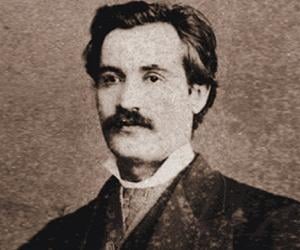
Considered the national poet of Romania, Mihai Eminescu was a major figure of Romanticism in Romanian literature. Starting as an editor for the paper Timpul, he later penned iconic poems such as Luceafărul, or The Evening Star, and stories such as Sărmanul Dionis and Cezara. He, unfortunately, died in a mental asylum.
Edmund Husserl was a German philosopher of Moravian origin. He established the school of phenomenology. He studied mathematics, physics, and astronomy at the University of Leipzig and worked as an assistant to mathematician Karl Weierstrass. He later became a professor of philosophy and taught for several years. He is considered a major figure in 20th-century philosophy.
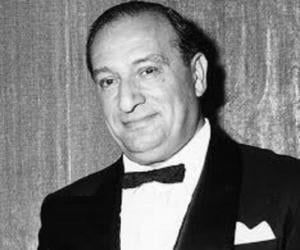
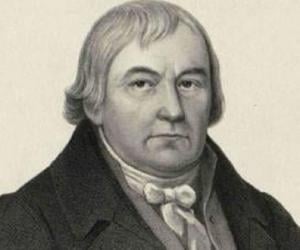
Though a doctor, Franz Mesmer studied the influence of astronomical bodies on the human body and on an invisible fluid inside it. He was a pioneer of animal magnetism, or mesmerism, which paved the path for modern-day hypnotism. Critics slammed his ideas and called him a fraud, too.
Cesare Lombroso was an Italian criminologist, phrenologist, and physician. He founded the Italian School of Positivist Criminology at the end of the 19th century. Initially an army surgeon, he later became a professor of forensic medicine and hygiene. His works drew from the concepts of physiognomy, degeneration theory, and psychiatry. Later in life, be became interested in spirituality.
Ivo Andric was a Yugoslav short story writer, poet, and novelist. Andric won the 1961 Nobel Prize in Literature after the Nobel Committee chose him over writers like Robert Frost, E. M. Forster, John Steinbeck, and J. R. R. Tolkien. After receiving the award, Andric's works were translated into several languages as they found an international audience.

Born to a doctor, Arthur Schnitzler had initially followed in his father’s footsteps and practiced medicine, gaining expertise in psychiatry. He later made a mark as an author and playwright with works such as Anatol and None but the Brave, which became hallmarks of modernism and the decadent movement.
Elfriede Jelinek is an Austrian novelist and playwright who was honored with the 2004 Nobel Prize in Literature. Widely regarded as the most prominent playwright of the German language, Elfriede Jelinek has several prestigious awards and honors under her belt.
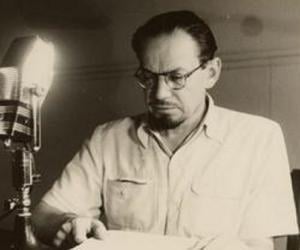
Austro-Hungarian journalist Leopold Weiss was a descendant of rabbis and ran away from home in his teens, taking up odd jobs, before finally becoming a journalist in Germany. His work took him to the Middle East, where he converted to Islam and adopted the name Muhammad Asad.
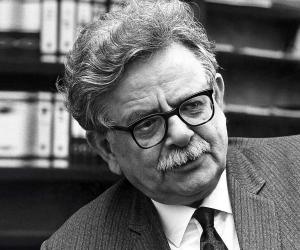
Bulgarian-born author and Nobel laureate Elias Canetti interestingly became one of the greatest authors in German, his third language. Though equipped with a doctoral degree in chemistry, he gained fame for his iconic works such as The Tower of Babel and Crowds and Power, which focused on crowd psychology.
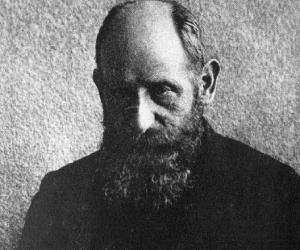
Psychoanalyst and physician Josef Breuer inspired what later came to be known as Sigmund Freud’s cathartic method to treat mental ailments. His experiments with his patient Anna O. proved the therapeutic effect of the talking cure. He had also conducted research on the respiratory cycle and discovered the Hering-Breuer reflex.
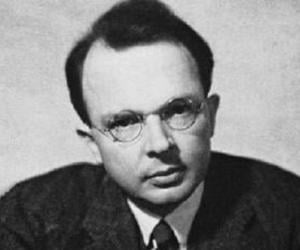
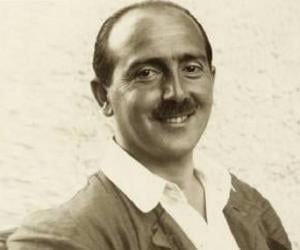
Hans Kelsen was an Austria-born jurist, legal philosopher and writer on international law, known especially for his Pure Theory of Law and his defense of democracy. Author of the 1920 Austrian Constitution, he left his homeland in 1930 due to rising totalitarianism. He went to the USA, where he taught at well-known universities, concurrently producing important works like Principles of International Law.
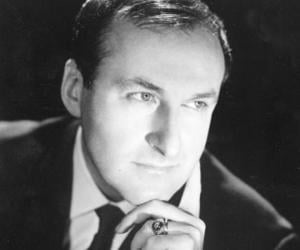
Austrian-American author and parapsychologist Hans Holzer, often credited for coining the term ghost hunter, penned over 120 books like Murder in Amityville on supernatural and occult subjects. He believed in life after death, reincarnation and the existence of spirits, ghosts, and stay behinds, and remained involved in researching the supernatural in some prominent haunted locations across the globe.
Nobel Prize-winning ethologist Karl von Frisch is best remembered for his research on communication among bees. He was the first to observe that bees communicate the location of food to other bees by a form of “dance.” He penned down his studies in books such as The Dancing Bees.
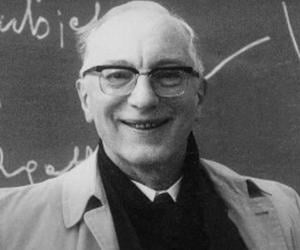
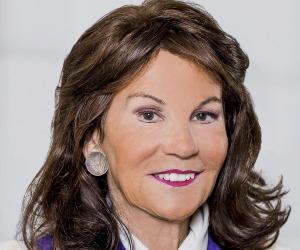
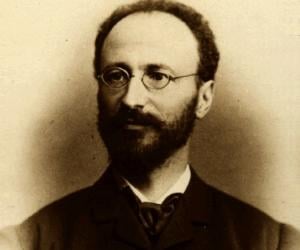
A major advocate of the Austrian school of economics, Eugen von Böhm-Bawerk made major reforms as part of the Austrian ministry of finance, such as imposition of the gold standard. He was also one of the first to oppose Karl Marx’s theory of exploitation of workers.
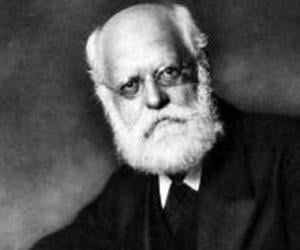
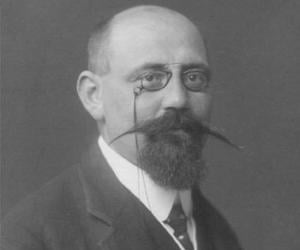
Remembered as the Father of the Republic in Austria, Karl Renner led his country as its third president. Previously, he had also led the first Austrian republic. Born into a humble family of wine-growers, he studied law and began his political career with the SDAP.
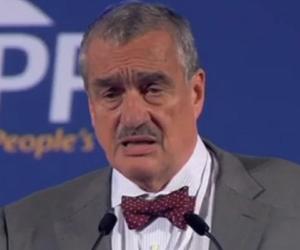
Karel Schwarzenberg is a Czech politician best known for his service as the Minister of Foreign Affairs on two occasions; from 2007 to 2009 and again from 2010 to 2013. He also served as Czech Republic's first Deputy Prime Minister in the Cabinet of Petr Nečas. Schwarzenberg is the recipient of several awards, including the Marietta and Friedrich Torberg Medal.
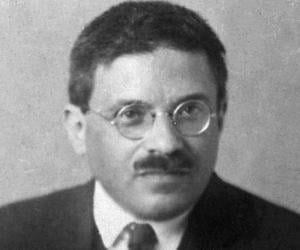
Paul Ehrenfest was an Austrian-Dutch theoretical physicist. A close associate of Albert Einstein, whom he had met during his visit to Prague in 1912, Ehrenfest frequently hosted Einstein in Leiden where he was serving as a professor. Paul Ehrenfest is best remembered for his work in the field of statistical mechanics.
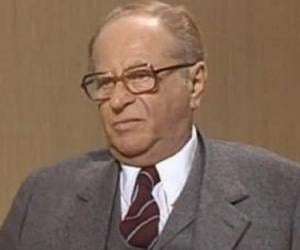
At 72, Bruno Kreisky ended his term as the oldest chancellor of Austria in the post-World War II era. The Social Democratic Party leader had been a doctor of law and had worked as a journalist, too. His 13-year stint as a chancellor was the longest-ever in republican Austria.
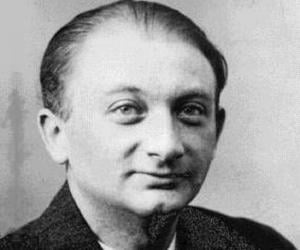
Austrian journalist and novelist Joseph Roth is noted for his novels Radetzky March and Job. He chronicled the decline and fall of Austria-Hungary in his family saga Radetzky March and wrote about plight of the Jews who migrated from eastern to western Europe following the First World War and the Russian Revolution in his short non-fiction book The Wandering Jews.
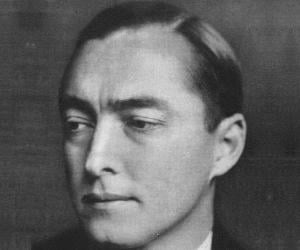
Son of an Austro-Hungarian diplomat father and a Japanese mother, Richard Nikolaus Graf Coudenhove-Kalergi, also known as Aoyama Eijiro in Japan, grew up to be a skilled politician and established the Pan-European Union. He was the first to receive the Charlemagne Prize and also had citizenships of Czechoslovakia and France.
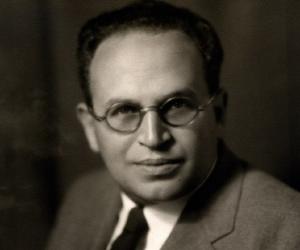
Paul Felix Lazarsfeld was a sociologist who founded the Bureau of Applied Social Research at Columbia University. A founding figure of empirical sociology in the 20th-century, Lazarsfeld made significant advances in statistical survey analysis, latent structure analysis, panel methods, and contextual analysis. He is also credited with co-founding mathematical sociology. Lazarsfeld also trained several younger sociologists like Barney Glaser.
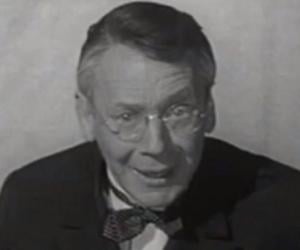
Initially aspiring to be a lawyer, Austrian writer Karl Kraus later deviated to philosophy and German literature before quitting studies altogether. He had also been a stage performer but later made his mark as one of the finest aphorists and playwrights in German history, with works such as Nights.
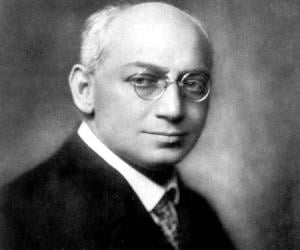
Sándor Ferenczi is best remembered for his research on free association and the psychoanalytic theory. Initially an army doctor, he specialized in subjects such as neuropathology and hypnosis. He was also close to Sigmund Freud and later taught at the University of Budapest. He also established the Hungarian Psychoanalytic Society.

Alfred Schutz was an Austrian philosopher and social phenomenologist. He is recognized as one of the leading philosophers of social science in the 20th century. A lawyer by qualification, he had a prominent career in international banking and did academic work in his spare time. Philosopher Edmund Husserl described him as “a banker by day and a philosopher by night.”
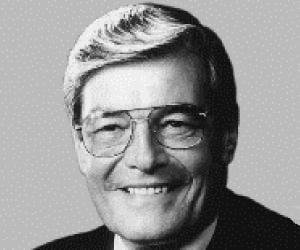
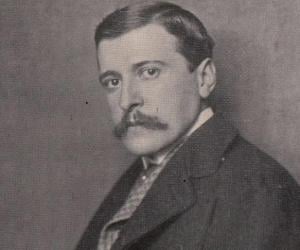
Known for his lyrical poetry and plays, Austrian author Hugo von Hofmannsthal had initially studied law and philology but later devoted his life to writing. His collaborative works with composer Richard Strauss included libretti for many of his operas, such as The Cavalier of the Rose and Arabella.
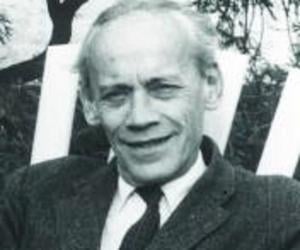
Considered a pioneer in the field of abstract algebra, Austro-German mathematician Emil Artin reached great heights in academics in spite of losing his father to syphilis at age 8. He's best remembered for his contribution to the class field theory and his theorems and concepts such as the Artin rings.
